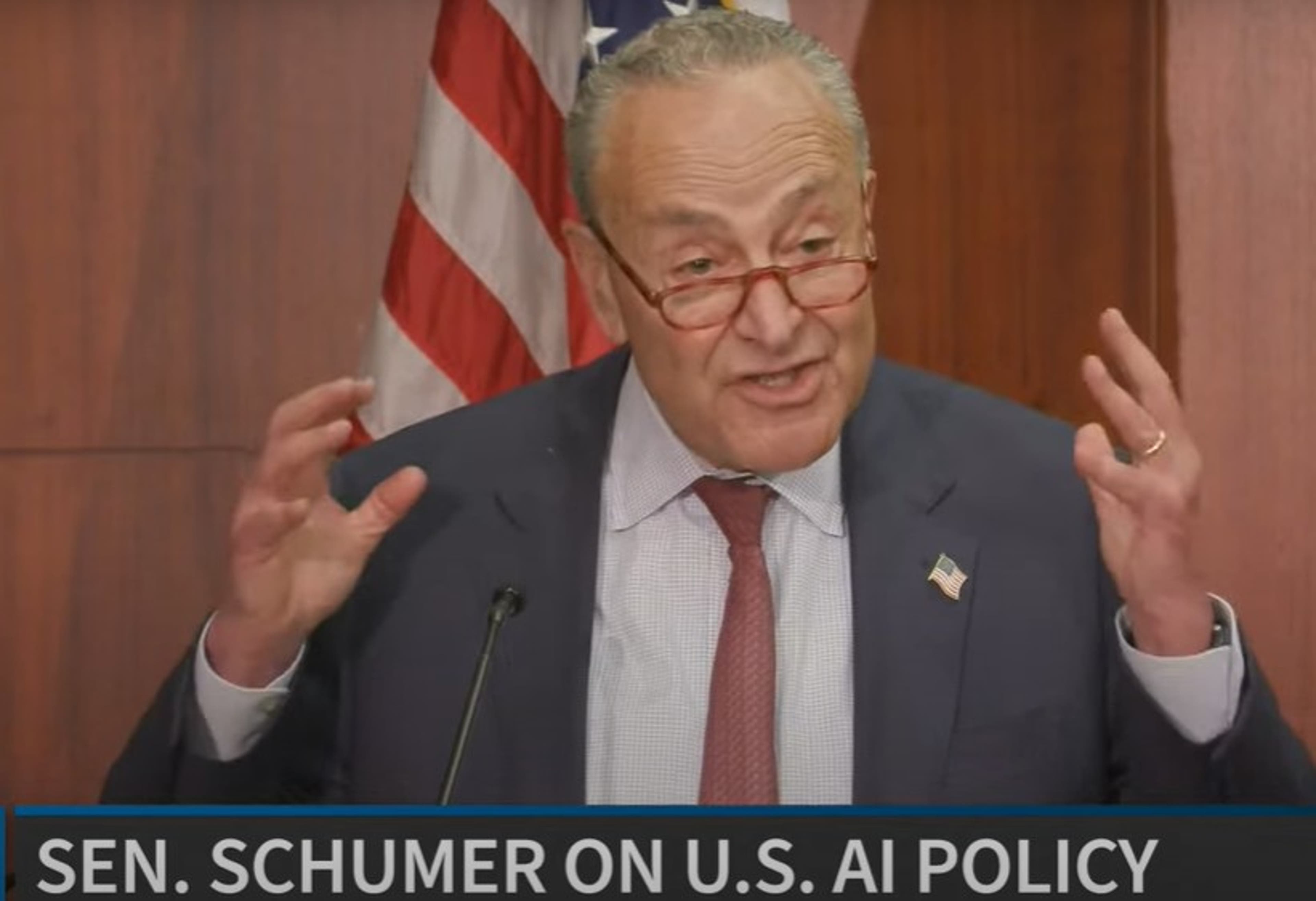U.S. Congress is prioritizing the establishment of rules for the deployment and use of artificial intelligence. While various proposals have begun to surface in recent weeks, Sen. Chuck Schumer, D-N.Y., has stepped up with arguably the most comprehensive plan yet.
Speaking at the Center for Strategic and International Studies, Schumer unveiled a two-part strategy to "move us forward on AI" with "one part framework, one part process."
The former component of the strategy is the "Securities, Accountability, Foundations, Explain and Innovation Framework," which Schumer characterized in a formal outline as "a policy response that invests in American ingenuity" and "ensures AI is developed and deployed in a responsible and transparent manner."
To fulfill the framework, Schumer also indicated a new process is required to address proper implementation of policies in the face of AI's ever-moving progression "at near-exponential speed." Instead of routine discussion and debate in legislative committees, Schumer said he will roll out "a series of AI insight forums" later this year that will guide curation of rules.
"I believe Congress must join the AI revolution and we need your help," Schumer said, noting AI is "unlike anything Congress has dealt with before" and acknowledging a lack of prior legislation leaves lawmakers "starting from scratch." He added his initiative "won't take days or weeks, but we won't take years."
On a global scale, Schumer said his framework is lightly informed by other countries' AI proposals, including the proposed EU AI Act. But he opined that "none of them have really captured the imagination of the world" and the hope for the U.S. proposal is for it "to be good enough that the world will follow."
The framework
The SAFE Innovation Framework will evolve through the insight forums, but Schumer said the the initial proposal asks "important questions," including those on "the balance between private AI systems and open AI systems" and how innovation and competition in AI space "remain open to everyone."
Specifically on the framework's accountability principles, Schumer said guardrails are required to ensure companies do not "exploit" people and democratic values through system bias. He added accountability is necessary to combat AI harms against children.
"What will stop companies from using AI to track our kids movements, inundate them with harmful advertisements, damage their self-image or mental health?" Schumer said. "Without making clear that certain practices should be out of bounds, we risk living in a total free-for-all."
Explainability was declared the "greatest challenge we have on AI" by Schumer, who stressed transparency on AI systems and their development will be the cornerstone of achieving other aspects of his framework.
Laying 'the new foundation' for AI
The insight forums will comprise a range of stakeholders and be leaned upon to inform the most balanced and workable framework for consumers and industries alike. Schumer also indicated the forums will be hyperintensive, expecting "years of work in a matter of months" while giving all ideas "a chance to be at the table."
The focus of individual forums will reach far and wide. Some topics that will be covered include innovation, use cases, risk management, transparency, privacy and liability.
"The panels will include people of differing views, including some skeptics," Schumer said. "We want the experts in each subject where we have questions and problems to sit around a table, debate the major challenges and forge consensus about the way to go."
Arriving at consensus
Congressional support for Schumer's framework is yet to be seen upon introduction, but he did call on fellow senators who have been immersing themselves in Congress' AI dialogue to join his initiative.
The existence of other AI proposals characterizes differences over policy, but also over general base AI knowledge to raise potential rules.
A day prior to Schumer's introduction, companion bills in the House and Senate were proposed to create a national AI commission. The National AI Commission Act takes a similar approach to Schumer's plan on process, establishing a diverse stakeholder working group to inform on the best path forward for AI rules.
In a statement, U.S. Rep. Ted Lieu, D-Calif., a co-sponsor of the House bill, said "we must also be humble and acknowledge that there is much we as members of Congress don’t know about AI." Those remarks break from Schumer, who said at CSIS that he's been acclimating himself to topics within AI for several months now.

